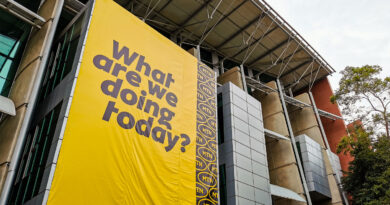No immediate plan to cut EV taxes in South Africa
South African consumers will have to wait longer for the price of electric cars to come down after the trade minister kicked the issue into touch.
Trade, industry & competition minister Ebrahim Patel said changing customs duties at this stage is unlikely to affect the local production of electric vehicles (EVs) for export.
The news is likely to disappoint the motoring industry, which has been lobbying government for years to cut the import duties on EVs, which are significantly higher than for vehicles with internal combustion engines. Governments in many other markets have moved to incentivise the sale of EVs; in South Africa, the opposite is true.
“At an appropriate point in time, we will look at that as a measure,” Patel said on Monday at a briefing on the release of government’s long-awaited white paper on EVs.
Government, Patel said, is looking at supporting the construction of “phase-one production facilities in South Africa” rather than providing tax incentives to consumers to buy EVs.
The minister said it is “not smart given the grid challenges we face” in delivering reliable electricity. “We will talk to the industry from time to time to decide on the optimal moment when we make a change to the import duties,” he said.
Government’s goal is to “ensure that the country forms part of the global shift from internal combustion engines to electric vehicles and supports investment in new and existing manufacturing plants to produce electric vehicles”, Patel said.
Initial focus
The initial focus of the transition to EVs will be on export markets as regulators in Europe move to prohibit internal combustion engine (ICE) vehicles.
The white paper reiterated that the transition to EVs is urgent given the speed at which markets are developing and the long lead times for investment decisions.
“Attracting investment requires a technology-agnostic approach, including embracing a range of clean energy sources; and investment will be needed to boost production,” the paper stated.
Read: Tesla gearing up to build sub-R500 000 electric car
“Solutions must be cost-effective and fiscally sustainable, while localisation of the auto supply chain is essential and must reflect the need for a just transition.”
Patel said he anticipates the first EVs being produced in South Africa by 2026, although some original equipment manufacturers are already producing hybrid vehicles.

To support EV production, there must be increased investment and funding, including incentive support, which he said will be announced in new guidelines.
“Higher levels of investment funding are intended to catalyse automotive assembly and component manufacturing, including the development of a regional electric battery value chain; raw material refining; battery active materials and component production; and cell manufacturing,” the white paper stated.
It also promises:
- A temporary reduction on import duties for batteries in vehicles produced and sold in the domestic market to improve cost-competitiveness;
- Maintaining a duty-free export market for vehicles and components produced in South Africa to support the industry;
- Tax incentives to deepen domestic value addition;
- Commercialising of green hydrogen production in South Africa;
- Energy reforms, including interim solutions for energy in partnership with industry;
- Implementing reforms to network industries, including freight rail and ports;
- Refurbishing the rail line between Gauteng and Ngqura to improve overall cost competitiveness; and
- Developing an EV certification programme in collaboration with industry for skills development.
To promote a South African market for EVs, the white paper suggests:
- Fleets transitioning to South African-produced new energy vehicles, including government-owned public transport and corporate fleets;
- Scaling up investment in charging infrastructure;
- Localising charging components and infrastructure;
- Supporting increased grid capacity to facilitate uptake of EVs;
- Consumer incentives for adopting EVs; and
- Evaluating economic regulation on EV charging.
For the policy to be successful, Patel said funding will be critical, with private capital and industry supporting government to finance it. He said the purpose of the white paper is to provide a public policy commitment that goes beyond a single budget cycle or the announcement of one ministry. Further details of measures to support EV production will be provided by the minister of finance in the 2024 budget speech, he said. – © 2023 NewsCentral Media
Get breaking news alerts from TechCentral on WhatsApp
Source: techcentral.co.za



